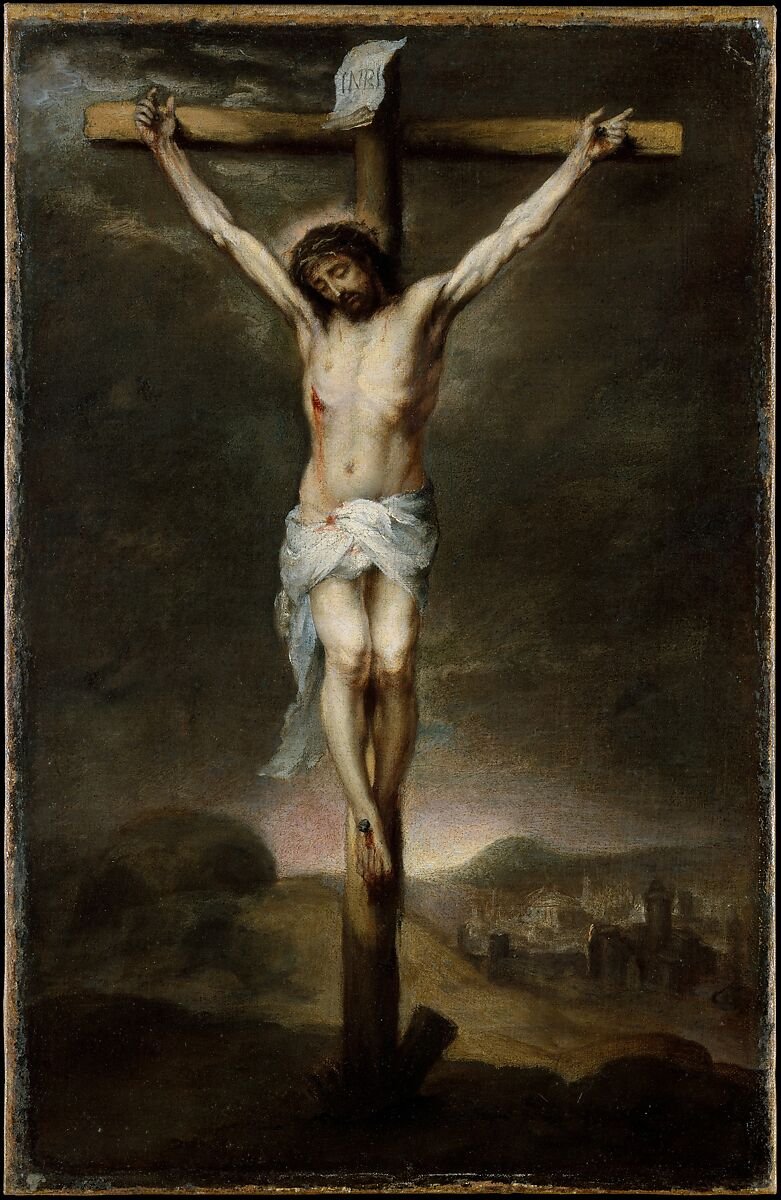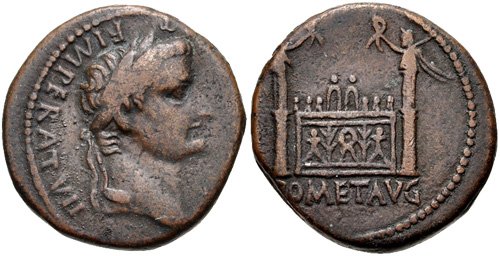
Jesus Dies (Luke 23:44–49)
At the darkest moment in the Gospel, heaven opens. In Luke 23:44–49, the sun fails, the temple curtain tears, and Jesus entrusts His spirit to the Father. This isn’t the end—it’s the turning point.

Jesus Before Pilate and Herod (Luke 23:1-12)
Explore the trial of Jesus before Pilate and Herod in Luke 23:1-12. Discover the political maneuvering, false accusations, and Jesus’ profound silence that fulfilled God’s redemptive plan. Learn how this passage challenges us to stand for truth, even when it costs us.

The Crucifixion of Jesus (Luke 23:33–43)
In Luke 23:33-43 Luke turns his attention to the people around the cross - the soldiers, the co-crucified. Jesus languishes yet offers assurance of God’s grace.

Jesus Is Mocked, Beaten, and Tried (Luke 22:63–71)
In Luke 22:63-71, Jesus faces mockery, physical abuse, and a trial before the Sanhedrin, foreshadowing His ultimate sacrifice. Explore the deep theological significance and practical lessons from this powerful passage in our in-depth commentary and reflection.

Peter Denies Jesus (Luke 22:54–62)
Explore a verse-by-verse breakdown of Peter’s denial and sorrow in Luke 22:54-62. Peter denies Jesus and in it we see his failure and remorse.

Jesus’ Arrest and Judas’ Betrayal (Luke 22:47–53)
Explore the intense moment of Jesus’ arrest and Judas’ betrayal in Luke 22:47–53. Learn about the significance of this passage, Jesus’ peaceful response, and the fulfillment of God’s plan.

Jesus Prays on the Mount of Olives (Luke 22:39–46)
In Luke 22:40, Jesus urges his disciples to pray so they will not fall into temptation. As they face an intense spiritual test, he calls them to vigilance. This moment highlights the necessity of prayer, the disciples’ weakness, and Jesus’ unwavering obedience

Jesus Foretells Peter’s Denial and What About the Sword? (Luke 22:35-38)
Jesus warns Peter of his impending denial and speaks of swords in Luke 22:31–38, revealing deep truths about human weakness, divine sovereignty, and the nature of Jesus’ mission. Explore the passage’s meaning, its connection to prophecy, and what it teaches about faith and discipleship today.

Who Is the Greatest? Jesus’ Teaching on Servanthood (Luke 22:24–30)
Who is the greatest in God’s Kingdom? In Luke 22:24–30, Jesus teaches His disciples that true greatness comes through servanthood. Explore His lesson on leadership, how it shaped the apostles in Acts, and what it means for us today.

Jesus and the Last Supper/Passover (Luke 22:7-23)
Discover the significance of Jesus and the Last Supper in Luke 22:7-23. Learn what Jesus ate, who betrayed him, and how the Passover connects to his sacrifice. Explore the meaning of the Upper Room, the new covenant, and why the Last Supper remains central to Christian faith today.

The Plot to Kill Jesus and Judas' Betrayal (Luke 22:1-6)
Explore Luke 22:1-6 with a detailed verse-by-verse breakdown of the plot to kill Jesus and Judas’ betrayal. Understand the historical, theological, and biblical connections


The Widow’s Offering (Luke 21:1–4)
Jesus highlights a poor widow’s offering in Luke 21:1–4, showing that true generosity is measured by faith, not amount. Discover the deeper meaning of her sacrifice and its relevance today.

Warning Against the Scribes (Luke 20:45–47)
Jesus warns against the scribes in Luke 20:45–47, exposing their hypocrisy, love for status, and exploitation of widows. Discover the deeper meaning of this passage and its relevance today.

The Question About the Resurrection (Luke 20:27-40)
The Pharisees, Sadducees, and Herodians were influential groups in Jesus’ time. Learn their beliefs, differences, and why they opposed Jesus in the Gospels.

Paying Taxes to Caesar (Luke 20:20–26)
Discover the meaning behind Jesus’ response to the question of paying taxes to Caesar in Luke 20:20-26. Learn why this was a trap, how it exposed the hypocrisy of the religious leaders, and what it teaches us about allegiance to God. Read now for historical context and practical insights!

The Parable of the Wicked Tenants (Luke 20:9-19)
In Luke 20:9-19, Jesus shares the Parable of the Wicked Tenants, revealing the consequences of rejecting God’s messengers. This powerful parable warns of judgment and points to the coming of God’s kingdom. Discover the timeless lessons and significance of this teaching for today.

The Authority of Jesus Questioned (Luke 20:1-8)
Who gave Jesus His authority? In Luke 20:1-8, the religious leaders challenge Jesus, but His response exposes their hypocrisy. Explore the meaning of Jesus’ authority and why it mattered.

Jesus Cleansing the Temple – Luke 19:45-48
Discover the meaning behind Jesus cleansing the temple in Luke 19:45-48. Learn why He was angry, how religious leaders profited from exploitation, and what this passage teaches about justice, worship, and the dangers of corrupt religion.

Jesus Weeps Over Jerusalem (Luke 19:41-44)
Why did Jesus weep over Jerusalem in Luke 19:41-44? Discover the meaning behind His lament, the prophecy of destruction, and what it teaches us today.







